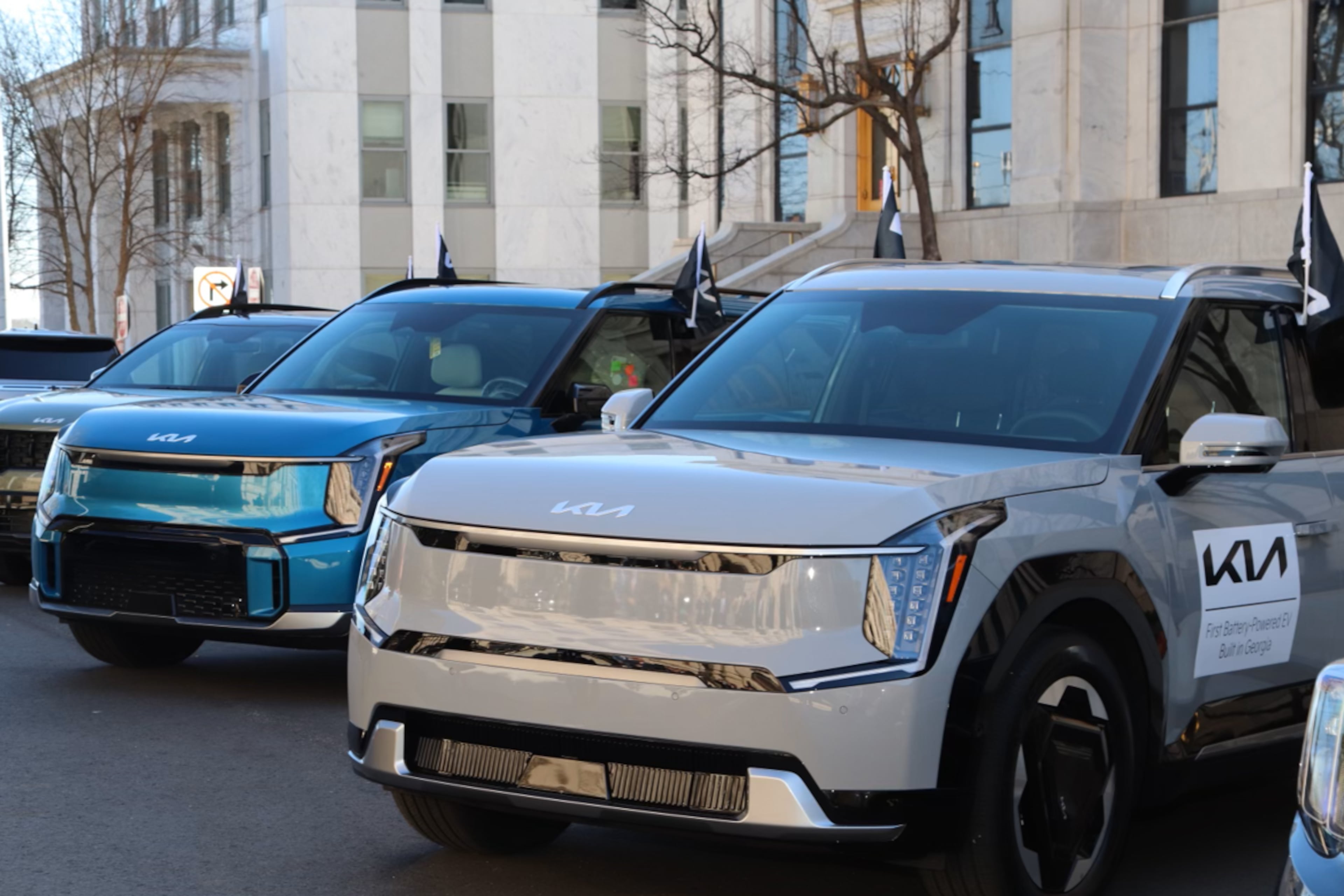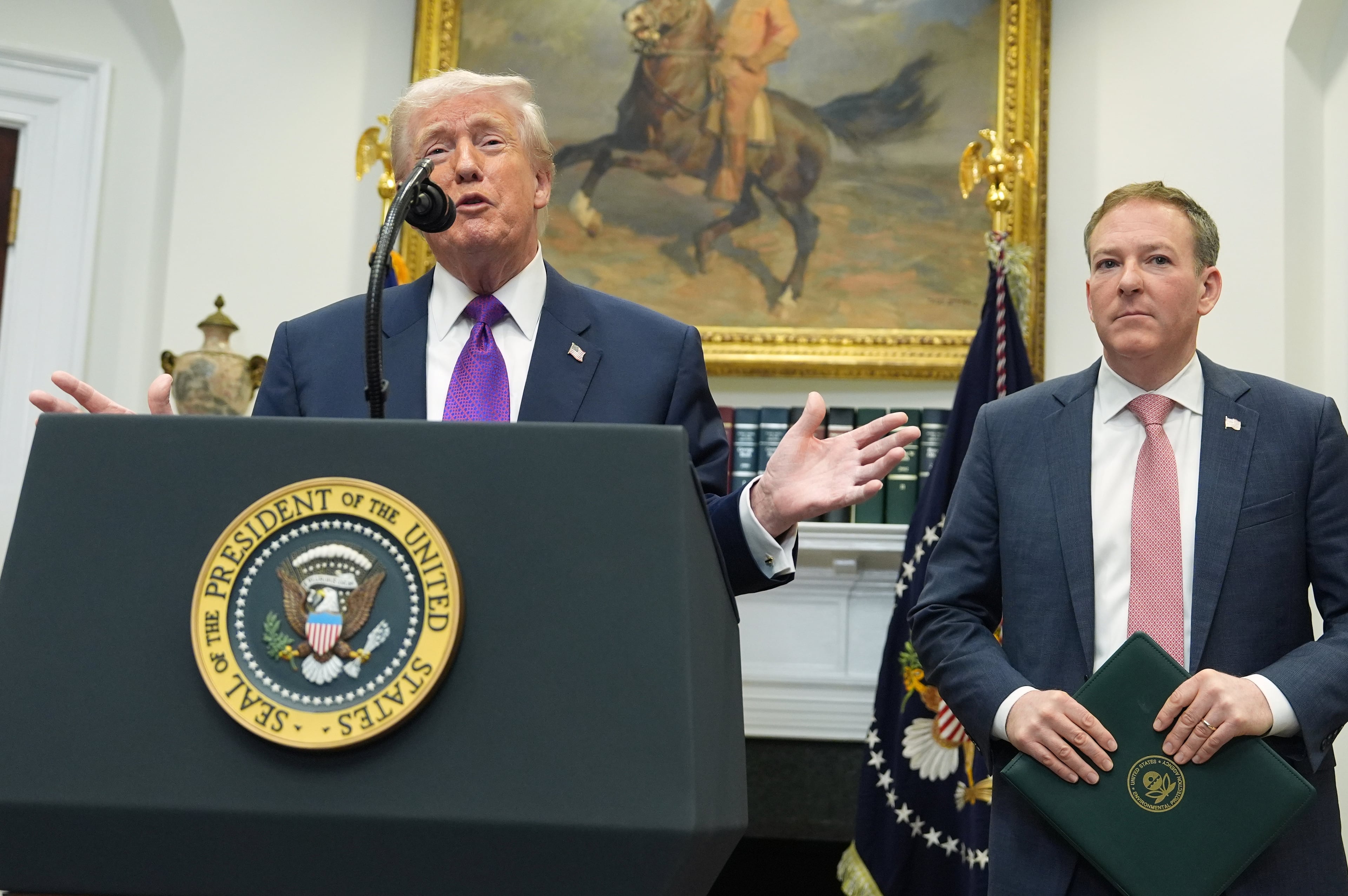How will new Chinese tariffs affect Georgia business? It’s complicated

President Joe Biden on Tuesday raised tariffs in an effort to protect American electric vehicle and solar panel industries from cheap Chinese imports, ramping up an ongoing trade war between the two global superpowers that could impact Georgia’s burgeoning clean tech sector.
The Democratic president quadrupled tariffs on Chinese EVs and sharply increased import taxes on solar panels and raw materials like semiconductors that are used to produce plug-in cars. The policy expands protectionist taxes implemented by Biden’s Republican predecessor — and 2024 reelection opponent — Donald Trump as both candidates joust to show who’s tougher on China.
China found itself in U.S. crosshairs over trade because its government heavily subsidizes the nation’s companies, allowing Chinese products to be sold at steep discounts across the globe. Cheap EVs and solar panels threaten to undermine U.S. investments in those industries, which are seen as pivotal tools for reducing planet-warming greenhouse gas emissions and building energy independence.
Georgia is among the states with the most at stake, with billions of dollars of EV and solar manufacturing capacity being built here.
Georgia’s federal and state leaders have heavily courted EV manufacturers, battery makers and solar panel producers with incentives in return for the promise of thousands of jobs.
U.S. Sen. Jon Ossoff, D-Georgia, said the solar tariff increases add to a series of recent policies aimed at strengthening “trade enforcement against China’s attempts to destroy U.S. solar manufacturing.”
U.S. Sen. Raphael Warnock, D-Georgia, agreed, adding that China “is engaging in unfair practices driven by a desire to dampen America’s burgeoning clean energy economy.”
Gov. Brian Kemp, a Republican, did not respond to a request for comment, but his administration has targeted Chinese investments in Georgia over similar concerns. In April, he signed a bill limiting some Chinese citizens from buying farmland in Georgia, arguing that, “We cannot allow foreign adversaries to control something as critical to our survival as our food supply.”
Fair competition
Georgia has quickly cultivated a roster of automotive producers, including stalwarts Kia and Hyundai alongside EV startup Rivian.
None of them sell new vehicles at prices that rival China’s leading EV manufacturer, BYD, which can start as low as $10,000. BYD and other Chinese bands so far do not sell their cars in the U.S. But American automakers and those from allies in Europe, Japan and Korea compete against the Chinese brands elsewhere.
The Alliance for Automotive Innovation, a trade organization representing Hyundai and Kia, said the discount offered by Chinese companies is too vast for American producers to overcome without government assistance.
“Automakers embrace fair competition. We’re not shrinking from it, but China’s EV overcapacity and subsidy issue is real,” said John Bozzella, the organization’s president and CEO. “The competitiveness of the auto industry in the U.S. will be harmed if heavily subsidized Chinese EVs can be sold at below-market prices to U.S. consumers.”
Hyundai is currently building its $7.6 billion “Metaplant” near Savannah that will have the capability of producing 300,000 vehicles a year in its first phase. Kia has launched a $200 million expansion of its West Point plant to incorporate production of a new three-row electric SUV called the EV9.

While Rivian’s $5 billion EV factory in southern Morgan and Walton counties has been indefinitely paused, its executives emphasize they remain committed to building the plant, which could produce 200,000 EVs within its first phase. Cox Enterprises, the parent company of The Atlanta Journal-Constitution, owns about a 3% stake in Rivian.
According to the Georgia Department of Economic Development, the state has announced 53 EV and battery projects since 2018 that combine for $27.3 billion in investment and more than 32,000 anticipated jobs. At a March event, Pat Wilson, the department’s commissioner, called China’s dominance of EV supply chains an issue of “national security.”
Peach State panels
China also looms large over the global solar industry.
Chinese companies control more than 80% of the worldwide production of solar panel components. And much like U.S. automakers fear a flood of Chinese EVs into the domestic market, cheap panels from China are driving prices down and causing heartburn for U.S. and European solar manufacturers.
The onslaught of cheap Chinese panels arrived as the Biden administration is delivering tax incentives from the Inflation Reduction Act aimed at building a domestic solar supply chain.
Arguably the most important cog in that effort is under construction now in northwest Georgia.
Solar giant Qcells is building a new factory outside Cartersville, part of a $2.5 billion plan the company announced last year to grow its manufacturing presence in Georgia. Panels are already being assembled at the Cartersville plant, but when the rest of the factory opens later this year, it will be the country’s first with a fully-integrated solar supply chain under one roof.

In the wake of the new tariff announcement Tuesday, Qcells’ president of corporate affairs Danny O’Brien praised the Biden administration’s move in a statement, calling it an “important step toward building a durable clean energy economy that will grow domestic manufacturing and create more U.S. jobs.”
Solar installers in Georgia also said they expect the tariffs could result in slightly higher prices for customers, but don’t foresee dramatic impacts to their businesses. Russell Seifert, the founder and CEO of Creative Solar USA, a Kennesaw-based solar installer specializing in commercial and residential projects, said be believes the import taxes could raise panel prices between 5% and 10%.
Still, he said he supports the move and believes most customers will too. He added that U.S.-made panels are significantly higher quality than their Chinese-built competition.
“Some consumers may say, ‘Well, the cost of my solar is going to be going up.’ But what you’re doing is supporting more jobs in the United States versus stuff being made overseas,” Seifert said.
A note of disclosure
This coverage is supported by a partnership with Green South Foundation and Journalism Funding Partners. You can learn more and support our climate reporting by donating at ajc.com/donate/climate/




